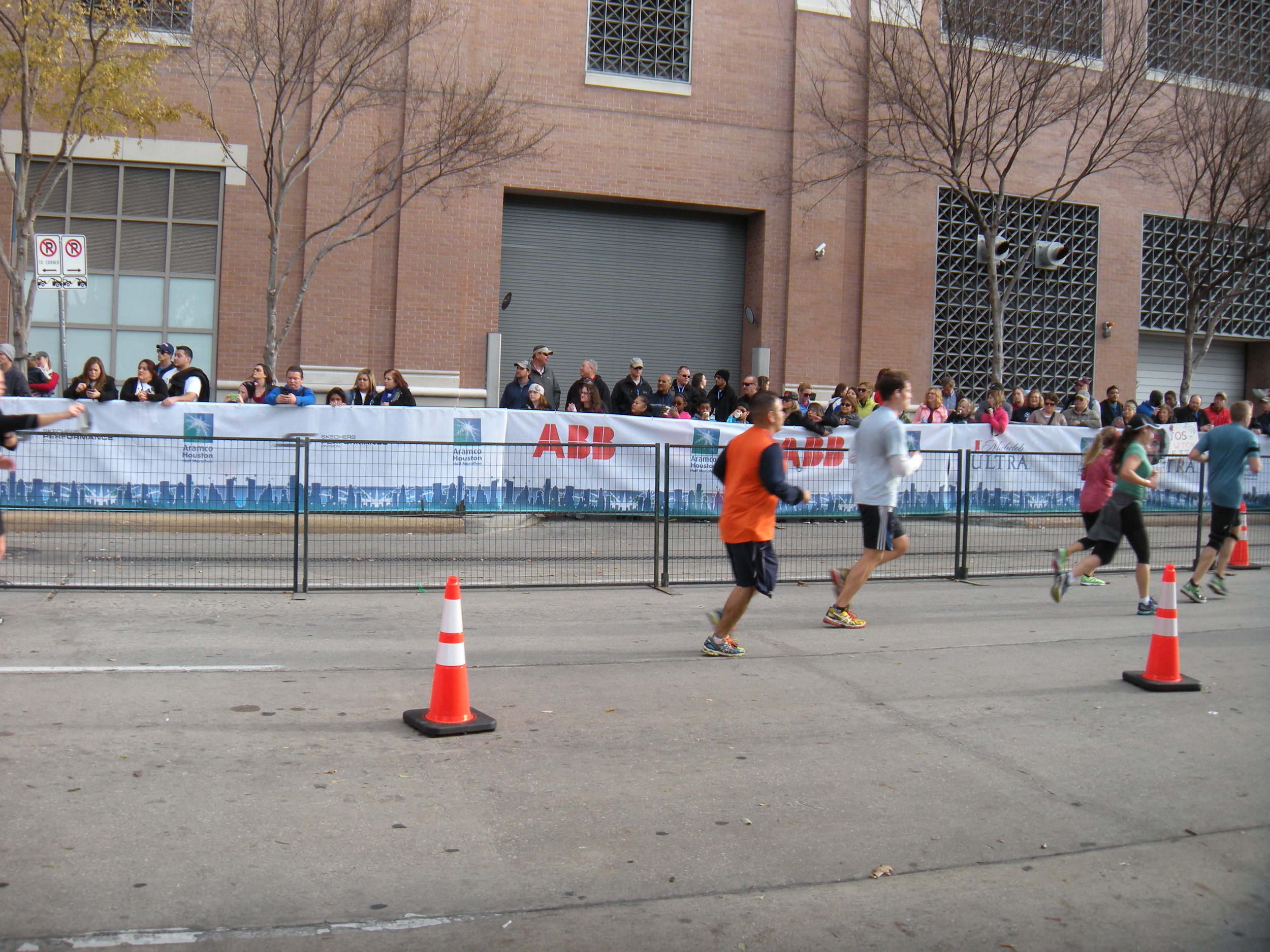Many of the people who run in the Houston Marathon do so in support of charities. Curtis’s company, Reed Smith, is encouraging their people to run on behalf of Dress for Success, which is puzzling for Curtis. He knows no women who do not know how to dress themselves. He’s literal, this son of ours.
“It’s about empowering women,” I tell him.
“Women should do what we men do,” he says. “When men want power, we take it.”
He’s not really a jerk. He says this to get a rise out of me. But in reality, what does he know about under-privileged women and their clothing issues? For his whole life he’s seen me emerge from my bedroom appropriately clothed. As far as I know, he’s never even had a conversation with a single mother who receives no child-support, and has little education and no skills. A lecture takes shape in my head, but I shrink it down, fold it, and put it in a box.
Usually on Sunday mornings we go to church. This is a big Sunday for David because his usher nametag is going to be in. He’ll pin it on and the people he hands programs to will know he’s legitimate, and not just some guy who likes to stand at the door and say hello to fellow Methodists. But Curtis is running in the Houston Marathon; well, he’s running the half-marathon portion, and we decide that, instead of going to church, we’ll make our way downtown and cheer for him and the other finishers.
Curtis hasn’t trained for this long run. To his way of thinking, it’s just a couple of regular runs back-to-back. This lack of concern is worrying, but not overwhelmingly so. It’s nice that he’s an adult now, and responsible for his own unpreparedness.
David and I drive north on 59, and take the Louisiana exit into downtown, parking several blocks away from the finish line in order to get some steps on our Fitbits. In the last twelve years or so downtown Houston has been transformed from a depressed and creepy quarter populated by spooks, into a thriving square mile buzzing with trendy restaurants, coffee houses, blues bars, theaters, and professional sports arenas. The odd thing, though, is that, in the midst of all this prosperous bustle, the homeless still sit raggedly on curbs and at bus stops. They lurk in corners and doorways, gazing blankly. They stumble drunkenly in and out of the fast-paced crowd. They, too, are part of Houston.
Our timing couldn’t be better. We find a perfect position at the barrier near the finish line just as the frontrunners are entering the home stretch. Music with a strong beat vibrates through the air and an announcer’s enthusiastic voice goes on and on and on. Cheering people line the barrier as, in the street, the athletes pound by, or scuff by, depending on their level of stamina. Some of them look comfortable. Quite a few are fighting their way through obvious fatigue, struggling to put one foot in front of the other.
There’s limping, cramping, swooning, vomiting, huffing. Some run on tip-toe, as though they have spikes in their heels. They wish they could run without their feet touching the ground. Running injured—is this insane or admirable? The consequence of long distance running that most awakens my sympathy is bleeding nipples. Several men, only one woman that I see, have twin streaks of red drawn down the fronts of their shirts. Youch!
A boy of about fifteen, blind, is helped along by two friends. Imagine that.
The street is divided, with the half-marathoners in one lane, and the full-marathoners in the other. The announcer kicks his excitement up a notch as the long-distance runners grow closer.
“Ethiopians!” he thunders. “It’s the Ethiopians! Ethiopians! Go Ethiopians!”
Curtis told us to watch for him around the two-hour mark, and so we look expectantly toward the oncoming cluster of runners. He’s right in the middle, cruising along, feeling no pain. We holler, “Yay, Curtis! Go, Curtis!” but he doesn’t hear us. He’s got his earphones in. His lips move as he sings whatever song is filling his head. Curtis, in the zone. He’s young and strong. Of course he didn’t need to train.
And now what? Wouldn't say no to brunch and a bloody Mary.
Birhanu Gidefa, winner of the Houston Marathon. Look at that stride. Go Ethiopia!
Curtis is in the while long-sleeves, dark shorts. Go Curtis!
Curtis at brunch wearing his "Finisher" medal.
Brunch: salmon omelette, fruit, cheesy grits--and of course, what's left of the bloody Mary.











